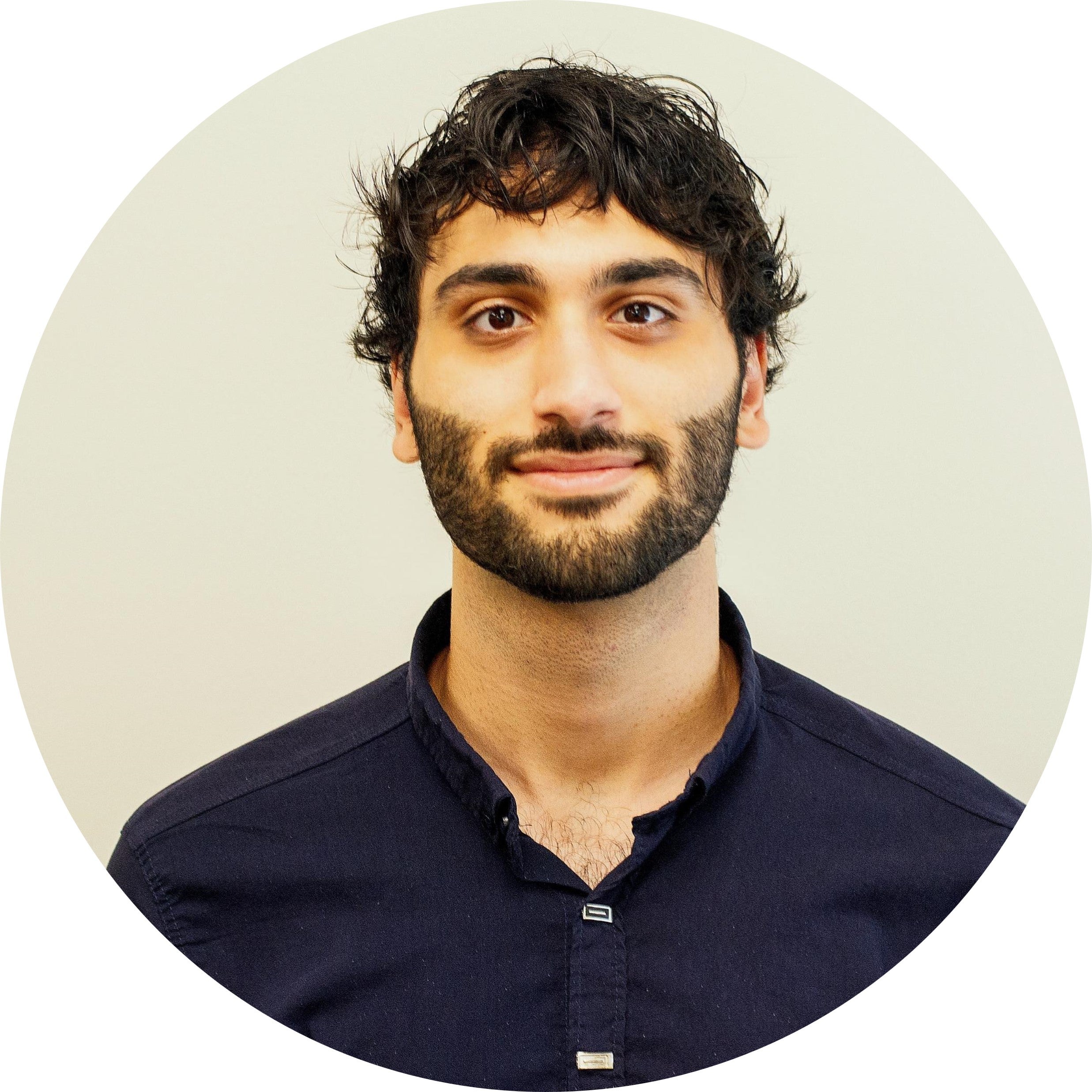Giorgi Shautidze

GU IMSD Fellow
2024 Cohort
As a child, I realized that all the breakthroughs in my field of interest (which was obviously black holes at that time) were happening due to ‘scientists’ and ‘researchers.’ … I decided from an early age that I would be a part of this progress.
The Georgetown University Initiative for Maximizing Student Development (GU IMSD) is designed to develop a diverse cadre of doctoral scholars prepared for careers in the biomedical scientific workforce. Our incoming GU IMSD Fellows share their interests, career goals, and advice for aspiring Ph.D. students.
About Giorgi
Originally from Brooklyn, New York, Giorgi Shautidze is pursuing a Ph.D. in Pharmacology & Physiology at Georgetown. He obtained a B.A. in Biochemistry at CUNY Hunter College and a M.S. in Pharmacology at Georgetown University.
How did you become interested in your area of study?
I am interested in the root causes of neurodegenerative diseases such as Parkinson’s and Alzheimer’s Disease. This involves the molecular mechanisms of neurodegeneration, the brain circuitry they affect, and their behavioral effects. Discovering the fundamental properties of these diseases will aid in investigating preventative measures, whether they be pharmacological or otherwise.
What are you most excited about as you join the GU IMSD program?
The IMSD program is a very unique opportunity that I am proud to be taking part in. I hope to gain valuable insight from all fields of study that are represented in the program, as well as apply those insights to my research. I hope to participate in a community of like-minded scientists, and share experiences so we can all navigate the landscape of science more seamlessly.
How have your previous experiences or background influenced your personal or professional development, interests, or career goals?
As a child, I realized that all the breakthroughs in my field of interest (which was obviously black holes at that time) were happening due to “scientists” and “researchers.” More and more, I noticed that every field I took an interest in was being fleshed out by these anonymous conglomerates of incredibly smart people. I decided from an early age that I would be a part of this progress. As I learned biology and chemistry, I took a liking to molecular biology and biochemistry, which revealed a microscopic world that influenced every living thing from behind the scenes. In terms of the mysteries of this world, I found the brain is one of the most compelling ones to study, as the field has the most potential to grow. Understanding the brain will help understand the devastating diseases that might be affecting it and would provide insight into how to prevent such ailments from occurring.
What advice do you have for applicants who want to pursue doctoral programs?
Go for it. Going into the interviews, I had a pretty bad case of imposter syndrome, thinking that my experiences and skills were dwarfed by those of my peers. Throughout the process, I kept doubting myself and thinking my application would be thrown out at any given moment. However, I did not give myself enough credit. When it came time, I put my best foot forward, and it paid off. My advice is this: it is almost inevitable to feel like you’re surrounded by people infinitely smarter than you, you are applying for a Ph.D. program at the end of the day. However, you have to push through it, do your research on the programs you’re applying to, as well as the people you might be working under, and dress to impress (both literally and figuratively). If you enter the room with the right energy and show your truest self, success will follow soon after.
